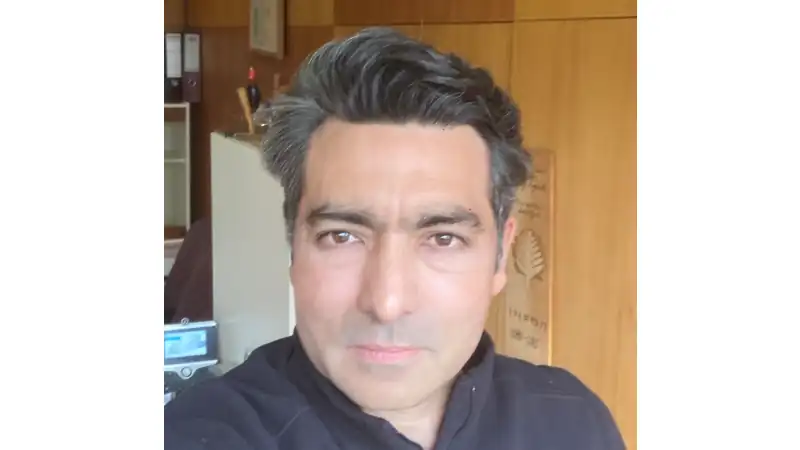Rodrigo Mujica Hoevelmayer
Forestry Engineer, Doctor of Forest Sciences.
A conductor is someone who coordinates the ensemble of musicians so that they express themselves harmoniously during the performance of a musical piece. Without this direction, achieving a good result is impossible. This is what has happened in Chile's forestry sector. There has been no one within the state structure responsible for leading and coordinating the sustainable forest development that our country so desperately needs.
Today, there is widespread consensus on the need to consolidate a sustainable forest development model capable of efficiently balancing environmental, social, and economic aspects according to the characteristics of each territory, thereby addressing the country's local and global challenges.
On the environmental front, efforts must deepen to ensure water provision in quantity and quality, soil protection, and biodiversity conservation. On the social front, forestry activities must be harmonized with community development, their cultures, and settlements. On the economic front, progress must be made in valuing and increasing the quantity and quality of timber and non-timber products from forest and xerophytic ecosystems.
Alongside this, stronger support is needed for small and medium-sized forest and deforested land owners, timber SMEs, as well as those linked to various manufacturing industries and associated services, fostering productive linkages and associative models.
The country must produce and manage sustainably sourced timber to address the challenges of increasing its use in construction, developing new materials for a bioeconomy, and successfully implementing the solid biofuels law. All this is possible and would, in turn, generate even more and better jobs, along with local-scale economic growth. Additionally, forests play a crucial planetary role in reducing CO2 emissions and mitigating the climate crisis. Ultimately, sustainable forest development represents a field of opportunities and challenges for Chile. The forestry sector is poised to be a key player in rural development and the transition to a green economy.
To harness this great potential, greater and better coordination among public institutions, the private sector, and civil society is essential, as is more and better ongoing constructive dialogue among the diverse perspectives and visions in forestry. The responsibility for leading this dialogue and coordination lies primarily with the state. However, today's public forestry institutions, despite the commendable efforts of their staff, lack a structure suited to these opportunities and challenges. Currently, they are not equipped to coordinate, facilitate, and consolidate the sustainable forest development the country so deeply desires. The meager results and failures of Chile's 2015-2035 forestry policy reflect this.
Despite the enormous efforts of various sectors linked to forest development to agree on a common future, the goals remain far from being met. Today, sustainable management of native forests is still scarce, thousands of hectares of forests continue to degrade, thousands of hectares of land across the territory remain eroded, and as a result, thousands of rural families still await prosperity. When combined with insufficient progress on the country's international CO2 reduction commitments under the Nationally Determined Contributions (NDCs), the need for adjustments in the state structure becomes even more evident.
The country needs a Forestry Undersecretariat, with technical relevance and political influence within the state structure, to lead and coordinate the sector's development comprehensively, multidimensionally, and with a long-term vision. The Forestry Undersecretariat would have the political and strategic responsibility to guide, harmonize, and coordinate the formulation, implementation, monitoring, and articulation of policies and programs with local, regional, national, and international impact, ensuring respect for the environment, social justice, local culture, and economic competitiveness.
Despite the existence and efforts of the National Forestry Corporation (Conaf), the Forestry Institute (Infor), and other state agencies, consolidating the sector's sustainable development requires a level of decision-making and political engagement within the state that these services lack. The Ministry of Agriculture, under which these services operate, is primarily focused on agricultural development, leaving the complexity of forest development to agencies without the necessary rank or political responsibility.
This is an obstacle to proper interaction between the state, the private sector, and civil society, ultimately generating uncertainty and forest development progress far below what the country demands. The necessary creation of a National Public Forestry Service, as a successor to Conaf, is definitely not enough. Only a Forestry Undersecretariat, complementary to a National Forestry Service, would be capable of coordinating and articulating all state entities, the private sector, and civil society with political efficacy.
It is worth noting that the creation of a Forestry Undersecretariat is not a new proposal. In 1998, a bill was introduced in the Chamber of Deputies to create an Undersecretariat for Forest Development. The presidential message stated that "the fundamental purpose of this initiative is to establish a new institutional framework for the public forestry sector."
It is highly likely that the creation of the Forestry Undersecretariat, based on this bill, would have resulted, a quarter-century later, in forest development far superior to what we observe today.
Unfortunately, after so many years, the country is still waiting for a "conductor," in the form of a Forestry Undersecretariat, to consolidate sustainable forest development and transition to a bioeconomy dependent on the sustainable use of its forest resources.







Comments (0)
No comments yet. Be the first to comment!
Leave a comment